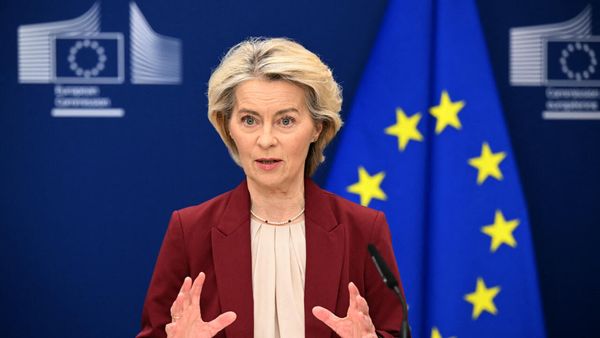
Azeem Rafiq sat well outside cricket’s consciousness in July 2020. It had been nearly two years since Yorkshire had let him go for a second time and it took an interview with the Professional Cricketers’ Association, published on its website and probably read by a handful of people, to bring him back into my mind. The subject was a new business Rafiq had opened with his family, a tea shop in Rotherham. While mapping a future outside cricket, he still had ambitions to keep playing.
I arranged an interview with Rafiq because I wanted to know how a once trailblazing Yorkshire captain found himself out of professional cricket at 29. We got talking about the players he’d once led for England’s under-19s – Ben Stokes and Joe Root among them – his ambition to become an international coach and, most painfully, the tragedy that had underpinned the last couple of years: the stillbirth of his son. In the wake of George Floyd’s death, I wondered about his experiences as a British Asian making his way at Yorkshire, a side that had once excluded players born outside the county’s boundaries.
Out it came, all with a sense of frustration: the “openly racist” captain, the isolation of the dressing room and a decade-old recollection of standing alongside three other Asian teammates. “There was me, Adil Rashid, Ajmal Shahzad and Rana Naved-ul-Hasan. We’re walking on to the field and one player said: ‘There’s too many of you lot. We need to have a word about that.’”
Rafiq didn’t name that player. Then again, did it matter? I got that this one example wasn’t really the story. “You can imagine the sort of thing that leaves on you and you hear these things all day, every day,” he said. When the interview was published, I assumed there would be a brief stir, but expected the status quo to remain.
Nearly three years on, it’s surreal to see where we’ve landed. Last month, a Cricket Discipline Commission panel cleared Michael Vaughan – the player Rafiq left unnamed in our interview – “on the balance of probabilities” of uttering those infamous words. So emerged a tale representative of our times, one from which anyone could take whatever they’d like. In one corner, Piers Morgan trumpeted the view that Rafiq had “tried to destroy one of my cricket heroes with racism lies”. Never mind, of course, the CDC panel stating that the findings regarding Vaughan “do not in any way undermine the wider assertions” made by Rafiq. Or that charges against several other ex-Yorkshire players were found to be proven. In the end, Rafiq was vindicated.
To bill this entire saga as a shootout between two men is to forget that all of this has been about something bigger: not Vaughan, not Yorkshire, not Rafiq. The real story has always been about the wider structures of the sport leaving many behind, closing ranks on those whose faces didn’t fit. The significant drop-off in British Asian cricketers from recreational to professional cricket. The dearth of Black cricketers at all levels. The private-school domination of English cricket. Rafiq brought focus on what goes on in a dressing room; the reality is that he’d done something quite special to get there in the first place.
It’s been a baffling and grim watch ever since I interviewed Rafiq. Yorkshire have played on a scale of extremes, from not commenting upon Rafiq’s initial allegations to then culling their backroom staff as part of a fresh start, a decision the club admitted was “procedurally unfair”. The ECB has bumbled along. The announcement of its 12-point action plan to tackle racism and discrimination, released soon after Rafiq’s testimony in front of MPs, had echoes of Michael Scott’s 45-day, 45-point plan to save Dunder Mifflin in The Office. They were years too late on it.
Meanwhile, lives have been changed beyond recognition. Rafiq’s is one, every minute detail of his past put on show in a way that could restrict others from speaking out. It isn’t easy to read about those on the other side either. Take John Blain, found by the CDC panel to have used racist language, telling the Daily Telegraph about the dark thoughts that have enveloped him, his fear “that this will never go away and someone will ultimately take their life off the back of it”.

While the game must find justice for victims, it also has to take responsibility and care for those found to be in the wrong.
After all of this – the mess, the mistakes, the reckoning – cricket in the UK finds itself in a healthier place. Rafiq’s intervention has forced the establishment to take note and change and if you don’t want to pin all your hopes on them to clean things up, there are others worth putting your trust in. Ebony Rainford-Brent, for example, whose ACE programme is giving opportunities to young Black cricketers and addressing class barriers. Or perhaps Dr Tom Brown, cofounder of the South Asian Cricket Academy, a programme that is producing a steady pipeline of British Asian cricketers into county cricket. Individuals are doing their part, making up for structural failings.
It doesn’t get prettier from here in the short-term, with a report from the Independent Commission for Equity in Cricket awaiting publication. Matters also remain unresolved at Essex, where former players have gone public about their experiences of racism at the club. The game will undergo further damage, greater embarrassment – and it will be better off for it.
This is an extract from the Guardian’s weekly cricket email, The Spin. To subscribe, just visit this page and follow the instructions.







